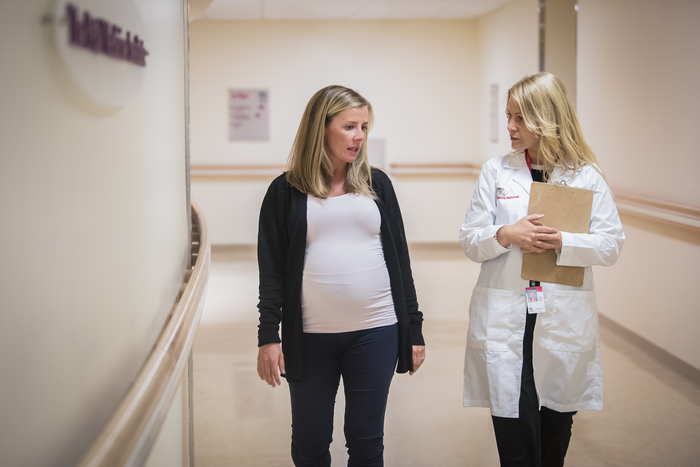Prolonged levels of stress and depression during the COVID-19 pandemic contributed to altering key features of fetal brain development — even if the mother was not infected by the virus. This is what a study published in Communications Medicine suggests after following more than 200 pregnant women. The study, led by Children’s National Hospital experts, emphasized the need for more scientific inquiry to shed light on the long-term neurodevelopmental consequences of their findings and COVID-19 exposures on fetal brain development.

Credit: Children’s National Hospital
Prolonged levels of stress and depression during the COVID-19 pandemic contributed to altering key features of fetal brain development — even if the mother was not infected by the virus. This is what a study published in Communications Medicine suggests after following more than 200 pregnant women. The study, led by Children’s National Hospital experts, emphasized the need for more scientific inquiry to shed light on the long-term neurodevelopmental consequences of their findings and COVID-19 exposures on fetal brain development.
“Understanding how contemporary stressors may influence fetal brain development during pregnancy has major implications for basic science and informing public policy initiatives,” said Catherine Limperopoulos, Ph.D., chief and director of the Developing Brain Institute at Children’s National and senior author of the study. “With this work, we are able to show there’s a problem, it’s happening prenatally, and we can use this model to start exploring how we can reduce stress in moms and support unborn babies.”
To better understand the effects of environmental exposures on the fetus during pregnancy, further confirmation of the team’s latest findings is needed by ruling out other possibilities, such as maternal nutrition, financial security and genetic factors.
The psychosocial impact of COVID-19 on fetal brain development remains vastly understudied. The neurologic underpinnings of fetal development that turn into psycho-behavioral disorders later in life, including bipolar disorder, mood disorder or anxiety disorder, remain complex and difficult to explain.
Among the 202 participants from the Washington D.C. metropolitan area, 137 were part of the pre-pandemic cohort and 65 were part of the pandemic cohort.
Through advanced MRI imaging techniques and reconstruction of high-resolution 3D brain models, the researchers found a reduction of fetal white matter, hippocampal and cerebellar volumes and delayed brain gyrification in COVID-19 pandemic-era pregnancies. Validated maternal stress, anxiety and depression scales were also used to compare the scores between the two cohorts.
This study builds upon previous work from the Developing Brain Institute led by Limperopoulos, which discovered that anxiety in pregnant women appears to affect the brain development of their babies. Her team also found that maternal mental health, even in high socioeconomic status, alters the structure and biochemistry of the developing fetal brain, emphasizing the importance of mental health support for pregnant women.
“We’re looking at modifiable conditions,” said Limperopoulos. “What’s clear is the next frontier is intervening early to see how we can prevent or reduce stress in the mom’s current setting.”
Journal
Communications Medicine
DOI
10.1038/s43856-022-00111-w
Article Publication Date
26-May-2022




